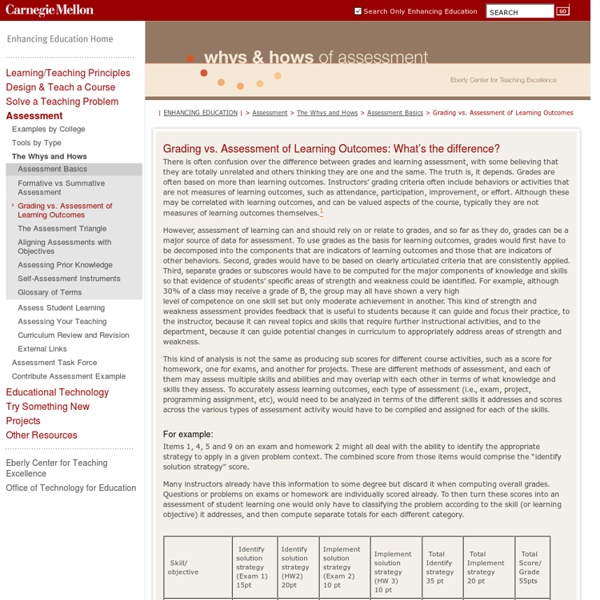Grading vs. Assessment of Learning Outcomes - Enhancing Education

assessment of student learning
Assessment of student learning core definition explanatory context Assessment of student learning may be formative or summative. Assessment, especially if it is summative, is usually graded. Achievement of satisfactory summative grades is frequently used to signify progress or the achievement of an award. Assessment covers the whole development of student learning evaluation, while grading refers to the specific attachment of marks/grades. Assessment plays a significant role in the learning experience of students. Assessment is usually construed as being either diagnostic, formative or summative. … Any assessment instrument can, and often does, involve more than one of these elements. It is important to distinguish between assessment of student learning as described here and the notion of assessment as part of the Assessment Movement, which is more akin to improvement of the student experience (see assessment). analytical review Charles Sturt University (2011) defines it simply as: T. See also
www.ncsu.edu/assessment/presentations/assess_process/basic_plan_devt.pdf
Assessing students online learning
A publication of The Professional & Organizational Development Network in Higher Education. The posting and use of this publication on your institution's WWW server is covered by an End User License Agreement (EULA). By the terms of this agreement, the essay must be located on a secure server that limits access to your institution's students, faculty, or staff. Use beyond your institutional boundaries, including the linking of this page to any site other than this one, requires the express permission of the POD Network. The educational community in higher education has, for some time, debated assessment issues. Constructivist learning paradigms are learner-centered and posit that learning occurs when students are actively engaged in making sense of phenomena as well as constructing and negotiating meanings with others (for an extensive review and analysis of this literature, see Comeaux, 2002). In constructivist learning environments, assessment and learning are integrally linked.
Related:
Related:



